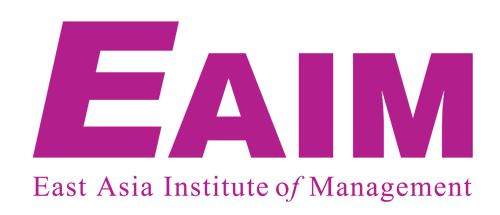Programme Introduction
With academic content developed by Aston University, one of the top universities in UK, and offered through East Asia Institute of Management (EAIM), the 24 months Medical Bioscience course is the ideal academic progression pathway for biomedical and life science related Diploma holders in Singapore.
The BSc ( Hons) Medical Bioscience will equip you with the training, professional skills and technical knowledge required for a rewarding career in biomedical science or research in the allied health profession. It will give you the abilities needed to provide healthcare, undertake medical research and understand the pharmaceutical industry. You’ll develop a thorough knowledge of the core principles of how the human body works, and a deep understanding of the vital role biomedical scientists play in the healthcare sector.
Entry will be start of stage 2 and will be via recognised prior learning of an approved programme of study at Diploma level.
This qualification offers you the flexibility to begin your studies in October, January, April and July each year and, on successful completion, you will graduate with an honours degree awarded by Aston University.
Academic content is provided by Aston University academics, and you will also be supported by tutors at EAIM. The course director on behalf of Aston University is Dr Stephane Gross, Lecturer in Cellular Biology.
Modules
Stage 2 ( Block 1- Block 4 )
This module aims to equip learners with the knowledge on the molecular and cellular principles underlying pathology. Students will apply fundamental knowledge to describe, at the cellular and molecular level, how the immune system responds to infection or damage can have beneficial or detrimental outcomes. Learners will be exposed to molecular mechanisms of pathology including cell death, inflammation, cell proliferation, genetic diseases and proteinopathies.
Final Stage ( Block 5 - Block 8)
This module aims to provide in depth understanding of Cancer biology including its nomenclature, causes, metastasis and the basis for conventional and novel therapies and development of resistance. It equips learners to understand various cancer treatments and cell resistance.
Full-time Evening Class: 24 months
Jan / Apr / Jul / Sep
One month prior to intake dates
1:49 (Classroom based lecture during Covid -19)
1:150 (Classroom based lecture)
1:300 (Blended-mode lecture)
1:50 (Workgroup session)
*The program is a face-to-face program, in view of Covid-19 and travel/border restriction, the program is delivered face to face or on blended mode in Singapore.
• Mid - Sessional Test/ Course work Test/ Virtual Learning Environment
• End of Module Examination.- Closed Book Examination.
Graduation Requirement
• Must passed all modules
• Must achieve an overall attendance of 90% (International Student) and 75% (Local Student).
- Obtained a Diploma in Biomedical Science with a minimum score of GPA 2.0 from a local polytechnic or an education institution, recognised by Aston University.
- The minimum entry requirement must meet the 120 credits of External Degree Programme (EDP) Year 1 as approved by Aston University.
English Language Proficiency
- Proficiency in English Language: Minimum EAIM ETEDP Level 3 (6.5) / IELTS 6.5 with a minimum score of 6.0 in each component.
- GCSE in English at level C or above.
You may apply to EAIM either by visiting EAIM Balestier Campus
or
mail your application to East Asia Institute of Management, 9 Ah Hood Road, Singapore 329975
| Local students | |
|
Course Fee
|
S$ 28,800
|
|
Admin Fee
|
S$ 1,200
|
|
Application Fee
|
S$ 150
|
|
TOTAL COURSE FEE
|
S$ 30,150
|
|
- The Application Fee is a one-time payment and is non-refundable.
- The Administration Fee includes STP fee (for International students only), FPS Insurance, medical insurance, etc.
- All prices are subject to the prevailing Goods & Services Tax (GST) of 9%.
- All prices are effective for intakes from January 2024.
- The start of classes is subject to achieving a minimum class size of 10.
- Other miscellaneous fees may apply. (Please click here for more information.)
|
| Medical Bioscience Course Sequencing 2023 (Teach-out Programmes) | |
| Q1 2023 | Q2 2023 |
| Stage-1 | Stage- 1 |
| Block 1 | Block 2 |
| Cell Biology | Metabolism |
| Molecular Biology | Endocrinology |
| Human Physiology | Medical Biochemistry |
| Medical Bioscience Key skills | Immunology |
| Stage -2 | Stage -2 |
| Block 3 | Block 4 |
| Cellular Pathology | Microbiology |
| Molecular Genetics | Clinical Microbiology and Infectious Disease |
| Molecular pathology | |
| Stage-3 | Stage-3 |
| Block 5 | Block 6 |
| Biological Basis of Human Disease | Advanced Immunology |
| Applied Molecular Biology | Biomedical Technology |
| Clinical Haematology and transfusion Science | Medical Bioscience Research Project |
| Medical Bioscience Research Project | |
| Q3 2023 | Q4 2023 |
| Stage-1 | Stage-1 |
| Block 1 | Block 2 |
| Cell Biology | Metabolism |
| Molecular Biology | Endocrinology |
| Human Physiology | Medical Biochemistry |
| Medical Bioscience Key skills | Immunology |
| Stage -2 | Stage -2 |
| Block 3 | Block 4 |
| Cellular Pathology | Microbiology |
| Molecular Genetics | Clinical Microbiology and Infectious Disease |
| Molecular pathology | |
| Stage-3 | Stage-3 |
| Block 5 | Block 6 |
| Biological Basis of Human Disease | Advanced Immunology |
| Applied Molecular Biology | Biomedical Technology |
| Clinical Haematology and transfusion Science | Medical Bioscience Research Project |
| Medical Bioscience Research Project |
|
| Medical Bioscience Course Sequencing 2023 (New Programmes) | |||
| Q1 2023 | Q2 2023 | Q3 2023 | Q4 2023 |
| Stage-2 | Stage- 2 | Stage- 2 | Stage- 2 |
| Block 1 | Block 2 | Block 1 | Block 2 |
| Mechanism of Pathology | Cell Signalling and Physiology | Mechanism of Pathology | Cell Signalling and Physiology |
| Stage- 2 | Stage- 2 | ||
| Block 3 | Block 4 | ||
| Clinical Genetics and Human Disease | Clinical Sciences | ||
Related Courses











